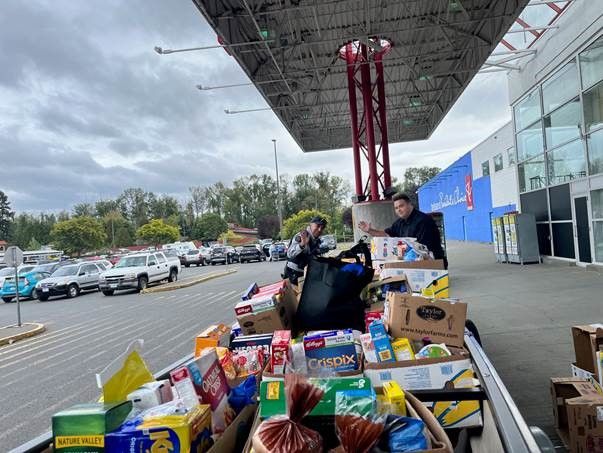The longest transit strike in BC’s history has many people and organizations in the Cowichan Valley eager for it to end, especially those on fixed incomes.
Cowichan Valley Basket Society manager Henry Wikkerink says the strike that started on Feb 8 has dealt the community a devastating blow, especially for those who are in need who rely on buses to get their food and for businesses as well.
“Our guests that come to get lunches or food hampers are having a very difficult time getting in here because lots of them are counting on transit,” he says. “Many of them are coming less, or they’re trying to find an alternative way to come and pick up what they need.
“It’s a challenge for them, especially when they’re already experiencing financial, and food insecurity because they don’t have enough money to go around.”
He says internally the Cowichan Valley Basket Society has also seen an impact on volunteers for the facility because many of them rely on transit, and don’t have access to reliable transportation.
“They’re having a difficult time,” he says. “We have one volunteer that used to take the bus every day to start at 7:30. He still comes but he has to walk,” Wikkerink says. “We have other volunteers who take the bus as well, but some of them aren’t coming because it’s too far.”
As the strike continues, Wikkerink says tension will continue to grow across the region, with many questions but very little answers.
“We’re frustrated because it’s going on for so long,” he says. “They don’t know who to blame, whether it’s government, the company or the drivers, but they’re frustrated because they want it (the strike) to end.”
The two sides met with a mediator on Jun. 12 and recommendations were made on Jun. 30, which members voted to reject.






